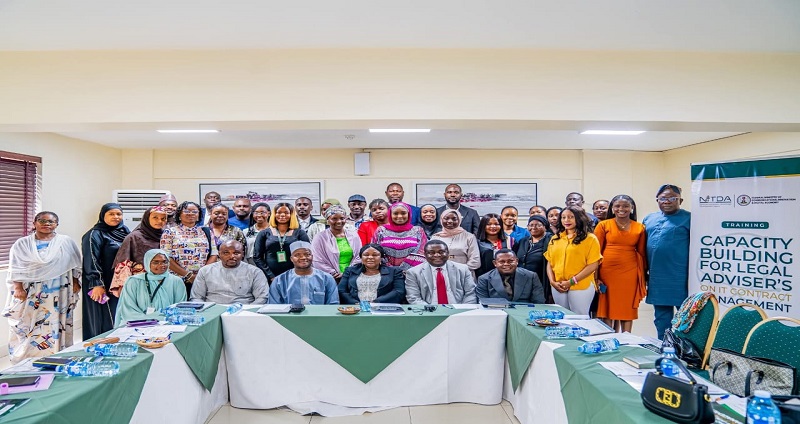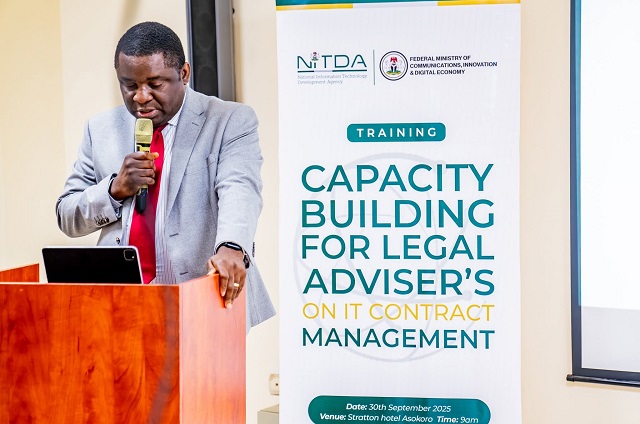As Nigeria advances its digital transformation agenda, the National Information Technology Development Agency (NITDA) has intensified efforts to enhance institutional competence in technology governance through a specialised capacity-building workshop for legal officers under the Federal Ministry of Communications, Innovation and Digital Economy (FMCIDE).
Held in Abuja, the one-day workshop focused on Information Technology Contract Management, equipping participants with practical insights on procurement procedures, negotiation strategies, compliance standards, and dispute resolution mechanisms essential to modern IT engagements.
Representing the Director-General of NITDA, Kashifu Inuwa, the Agency’s Director of Regulations and Compliance, Barrister Emmanuel Edet, underscored the centrality of IT contracts in shaping effective governance and sustainable service delivery.
“Digital transformation is no longer an ambition but a necessity. The agreements guiding technology adoption and deployment carry long-term consequences for Nigeria’s development,” he said.
He further stressed the need for professionalism and foresight in technology contracting, noting that every agreement must balance innovation with accountability.
“The contracts we negotiate, draft, and execute in the IT space must be technologically sound, legally robust, commercially fair, and strategically aligned with our institutional mandates,” he added.
Inuwa urged participants to approach the workshop not merely as a formal training session, but as a platform for collaborative learning and systemic reform.

“Let this event be more than a training. It should be a prompt for collaboration, a forum for critical thinking, and a commencement for institutional reform. Engage actively, ask questions, challenge assumptions, and leave here not just informed, but empowered,” he charged.
Participants drawn from various professional backgrounds, including law, technology, finance, and public administration, were commended for their commitment to strengthening governance through sound contracting practices.
Their engagement, according to the DG, reflected a shared resolve to uphold transparency, efficiency, and innovation across public institutions.
Beyond training, the workshop also fostered valuable networking and peer-learning opportunities, allowing officers to share experiences and explore solutions to common challenges in IT contract management.
Many attendees described the session as both “timely and transformative,” citing the growing complexity of technology agreements and the rising need for clear legal safeguards in Nigeria’s evolving digital ecosystem.
Through this initiative, NITDA reaffirmed its leadership role in building a digitally capable public service. The programme aligns with the Agency’s core mandate of capacity development, empowering legal officers with the knowledge and tools to guide their organisations toward more strategic, compliant, and effective technology contracting practices.
Ultimately, the training is expected to strengthen institutional processes across ministries, departments, and agencies, thereby enhancing public service delivery and advancing Nigeria’s broader sustainable development goals.

